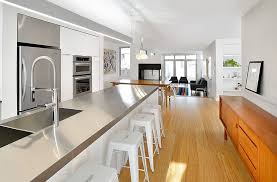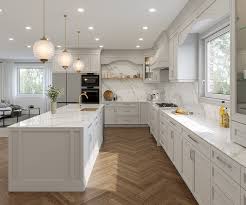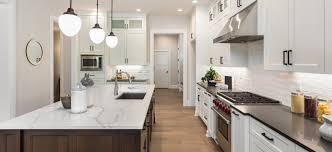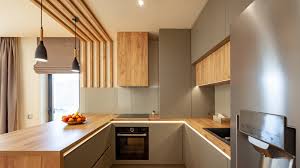A countertop, often referred to as a counter, is a crucial feature in any kitchen. It is a flat, horizontal surface designed for various tasks such as food preparation, cooking, and other culinary activities. The countertop serves as a central workspace in the kitchen, providing a durable and functional area where cooking and cleaning tasks are performed. The importance of countertops in kitchen design cannot be overstated, as they play a significant role in both the functionality and aesthetics of the space.
What is a Countertop?
A countertop is a horizontal work surface in kitchens, bathrooms, or other food preparation areas. It is typically installed on top of lower cabinets or kitchen islands. Countertops are used for a variety of activities, including meal preparation, chopping, mixing, and even dining. They are designed to withstand the rigors of daily use and are often made from materials that are resistant to heat, stains, and scratches.

The Importance of Countertops in a Kitchen
Countertops are essential in a kitchen for several reasons:
- Functionality: A well-chosen countertop material can enhance the functionality of a kitchen. It provides a stable and durable surface for cooking and other tasks. Certain materials are better suited for specific kitchen activities, such as chopping vegetables, kneading dough, or placing hot pans.
- Aesthetic Appeal: Countertops are a key design element in a kitchen. The material, color, and texture of the countertop can significantly impact the overall look and feel of the kitchen. A stylish countertop can enhance the kitchen’s aesthetic appeal and add value to the home.
- Durability: Kitchens are high-traffic areas, and the countertops need to withstand daily wear and tear. Durable materials ensure that the countertop remains in good condition for many years, even with constant use.
- Hygiene: Countertops are where food is prepared, so it is important that they are easy to clean and maintain. Non-porous materials, such as quartz or stainless steel, are often chosen for their ability to resist bacteria and mold growth.
Types of Countertops
There are numerous types of countertops available, each with its own set of characteristics, advantages, and disadvantages. Here are some of the most common types:
- Granite Countertops
Granite is a natural stone that is widely popular for kitchen countertops due to its beauty and durability. Each granite slab is unique, featuring a range of colors and patterns.
- Advantages:
- Highly durable and resistant to scratches and heat.
- Adds value to the home.
- A wide variety of colors and patterns.
- Disadvantages:
- Can be expensive.
- Requires periodic sealing to prevent stains.
- Heavy, requiring sturdy cabinetry for support.

- Quartz Countertops
Quartz countertops are engineered stone products made from a combination of natural quartz and resins. They offer the beauty of natural stone with added benefits.
- Advantages:
- Extremely durable and resistant to stains and scratches.
- Non-porous, making it easy to clean and hygienic.
- Available in a wide range of colors and patterns.
- Disadvantages:
- Can be as expensive as granite.
- Not as heat-resistant as granite.
- Heavy, requiring professional installation.
- Marble Countertops
Marble is a natural stone known for its elegance and luxury. It is often used in high-end kitchens for its stunning appearance.
- Advantages:
- Luxurious and elegant appearance.
- Cool surface ideal for baking and pastry work.
- Each slab is unique.
- Disadvantages:
- Prone to scratches and stains.
- Requires regular sealing and maintenance.
- Expensive.
- Laminate Countertops
Laminate countertops are made of a plastic laminate material bonded to a particleboard or MDF (medium-density fiberboard) core. They are an affordable option available in a wide range of colors and patterns.
- Advantages:
- Cost-effective.
- Available in a wide variety of colors and designs.
- Easy to install and maintain.
- Disadvantages:
- Less durable and can be damaged by heat and sharp objects.
- Not as high-end in appearance as natural stone.
- Can be difficult to repair if damaged.
- Solid Surface Countertops
Solid surface countertops are made from a blend of acrylic or polyester resins, pigments, and fillers. They offer a seamless look and are available in a variety of colors and patterns.
- Advantages:
- Non-porous and easy to clean.
- Seamless appearance with integrated sinks.
- Can be repaired and refinished if damaged.
- Disadvantages:
- Not as heat-resistant as stone.
- Can be scratched and dented.
- May be considered less prestigious than natural stone.
- Butcher Block Countertops
Butcher block countertops are made from strips of hardwood glued together to create a solid surface. They offer a warm, natural look and are ideal for food preparation.
- Advantages:
- Warm and natural appearance.
- Can be sanded and refinished if damaged.
- Ideal for chopping and cutting.
- Disadvantages:
- Requires regular sealing and maintenance to prevent stains and damage.
- Can be scratched and dented.
- Prone to water damage if not properly maintained.
- Concrete Countertops
Concrete countertops are custom-made surfaces that offer a unique and modern look. They can be cast in any shape and finished in a variety of ways.

- Advantages:
- Highly customizable in terms of shape, color, and finish.
- Durable and heat-resistant.
- Unique, modern appearance.
- Disadvantages:
- Can be expensive.
- Requires regular sealing to prevent stains.
- Can develop hairline cracks over time.
- Stainless Steel Countertops
Stainless steel countertops are often used in commercial kitchens but are becoming increasingly popular in residential settings for their sleek, modern look.
- Advantages:
- Highly durable and resistant to heat and stains.
- Easy to clean and maintain.
- Provides a modern, industrial look.
- Disadvantages:
- Can be noisy and prone to scratches and dents.
- Fingerprints and smudges are easily visible.
- Can be expensive.
- Tile Countertops
Tile countertops are made from ceramic or porcelain tiles set in mortar. They offer a wide range of design possibilities.
- Advantages:
- Cost-effective.
- Wide variety of colors, patterns, and designs.
- Heat-resistant.
- Disadvantages:
- Grout lines can be difficult to clean and maintain.
- Tiles can chip or crack.
- Not as smooth as other countertop surfaces.
- Soapstone Countertops
Soapstone is a natural stone that is softer than granite but still durable. It has a smooth, matte finish and a unique appearance.
- Advantages:
- Heat-resistant and non-porous.
- Develops a unique patina over time.
- Resistant to stains and chemicals.
- Disadvantages:
- Can be scratched or dented more easily than harder stones.
- Requires regular maintenance with mineral oil.
- Limited color options.
- Glass Countertops
Glass countertops are made from recycled glass or solid glass slabs. They offer a unique, contemporary look and are available in various colors and finishes.
- Advantages:
- Highly customizable and available in many colors.
- Non-porous and easy to clean.
- Provides a modern and unique appearance.
- Disadvantages:
- Can be expensive.
- Prone to scratching and chipping.
- Fingerprints and smudges are easily visible.
- Recycled Paper Composite Countertops
Recycled paper composite countertops are made from paper fibers and resin, offering an eco-friendly option for kitchen surfaces.
- Advantages:
- Eco-friendly and sustainable.
- Durable and heat-resistant.
- Available in various colors and finishes.
- Disadvantages:
- Can be expensive.
- Requires regular sealing.
- Can be scratched or stained.
Choosing the Right Countertop
Selecting the right countertop for your kitchen involves considering several factors, including budget, lifestyle, and personal preferences. Here are some tips to help you make an informed decision:
- Budget: Determine your budget before exploring countertop options. Materials like laminate and tile are more affordable, while natural stones like granite and marble are on the higher end of the price spectrum.
- Durability: Consider how much wear and tear your countertop will endure. If you cook frequently and need a durable surface, materials like granite, quartz, or stainless steel may be ideal.
- Maintenance: Some countertops require more maintenance than others. Natural stones like marble and granite need regular sealing, while materials like quartz and stainless steel are low-maintenance.
- Aesthetics: Think about the overall look you want to achieve in your kitchen. Each material offers a unique appearance, from the luxurious elegance of marble to the modern, sleek look of stainless steel.
- Functionality: Consider your kitchen habits and how you use your countertop. If you do a lot of baking, a cool surface like marble may be beneficial. For heavy-duty cooking, a durable and heat-resistant material like granite or quartz is ideal.
- Eco-Friendliness: If sustainability is important to you, consider eco-friendly options like recycled paper composite, recycled glass, or bamboo countertops.
Conclusion
Countertops are a vital component of any kitchen, providing a functional workspace and contributing to the overall design aesthetic. With a wide range of materials available, each offering unique advantages and disadvantages, choosing the right countertop involves careful consideration of your budget, lifestyle, and personal preferences. Whether you opt for the timeless beauty of granite, the modern appeal of quartz, or the eco-friendly nature of recycled materials, the right countertop can enhance both the functionality and visual appeal of your kitchen, making it a central hub for culinary creativity and family gatherings.







